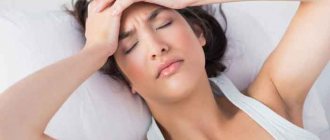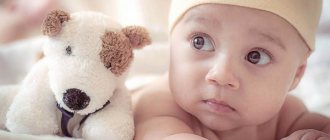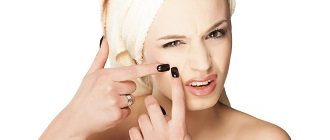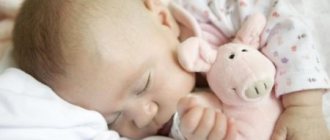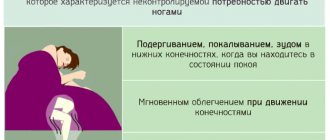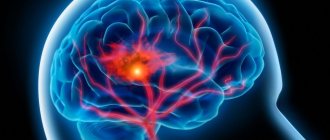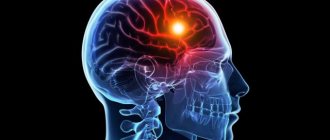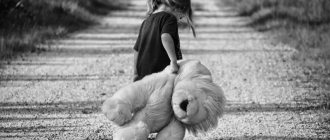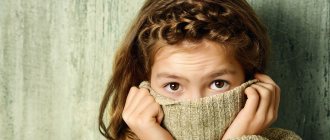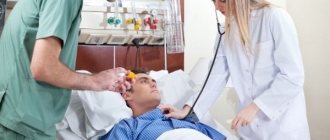0
Author of the article: Marina Dmitrievna
2017.11.04
4 846
Vessels
Stroke is the most common cardiovascular disease worldwide. The incidence of stroke occupies a leading position, and the mortality rate as a result of a violation of cerebral blood supply is more than 30%.
Disability of people affected by stroke accounts for up to half of all cases, which makes the problem of diagnosis, treatment and rehabilitation of victims of this pathology one of the most pressing in healthcare.
Neurological and mental disorders in the affected person lead to impaired social adaptation and a persistent decrease in the quality of life. Aggression after a stroke is one of the most common symptoms of mental disorders in the affected person.
Schematic representation of the formation of ischemic stroke
Causes of aggression
There are many reasons that influence changes in the behavior of a person who has suffered a stroke. Neurologists consider the following factors to be the most common:
- emotional instability;
- sharp decrease in vision;
- paralysis.
Sick people experience panic and psychosis after a stroke due to the inability to lead a normal lifestyle and dependence on other people.
From a physiological point of view, aggressive behavior is explained by a disruption in the production of hormones responsible for a state of joy. These hormonal substances are dopamine and serotonin. There are also internal factors that provoke aggression - constant stress and fatigue, acute infectious diseases, various types of chemical dependency.
Only a doctor can determine the true cause of aggression after conducting an examination and collecting all the necessary tests.
How loved ones should behave
If a person has post-stroke depression, then his family should behave correctly so as not to worsen the situation.
WE RECOMMEND SEEING: What is the danger of cerebellar ischemic stroke?
The following rules must be followed:
- Create a healthy microclimate in the family. There should be no showdowns within the family, as this can only worsen depression. If among your loved ones there is a person with such a problem, then everyone should make every effort so that he is not surrounded by negative emotions.
- Do everything so that the patient does not feel like a burden. After a stroke, the usual life of all family members and the victim changes. The patient begins to feel limited and considers himself inferior. Relatives should coordinate his time in such a way that he can easily carry out some actions on his own.
- Provide the victim with full communication. Do not avoid the opportunity to communicate with friends. This will help prevent the development of depression.
- Surround with maximum care. It is important to remember that a stroke takes a serious toll on a person’s physical and emotional well-being. Therefore, you need to take care of the patient and pay a lot of attention to him, but not go too far. Overprotection can also cause depression.
Signs of abnormalities
Changes in the psyche depend on the disturbances in the body systems caused by cerebrovascular disease. Due to severe emotional shock, some patients completely refuse help, scream and attack others. Often a person experiences apathy, a lack of interest in all activities. Such a patient is ready to spend all his time lying on the bed.
Many people who have had a stroke have some common symptoms, including the following:
- inappropriate behavior;
- sleep disturbance;
- weight loss;
- depressed state;
- desire to say goodbye to life.
The formation of a state of psychosis may be accompanied by excessive motor activity, delusional ideas, hallucinations, and tearfulness. Aggression is paroxysmal in nature. Most often, such outbreaks are recorded by medical specialists in the autumn-spring period.
Obsessive behavior in children
Obsessive behavior in children is a fairly common problem that many parents face. The disorder most often manifests itself when the child constantly bites his nails, twirls the hair on his fingers, and picks his nose. After repeated comments, the situation does not improve at all, repeating itself again and again. In this case, we are not talking about simple habits at all, but about neurosis. Therefore, it is quite difficult to deal with obsessive actions.
There can be many reasons for the manifestation of this type of illness, including divorce of parents, great fear of dog bites, or, for example, a child was once very scared because he almost drowned while swimming. Also, the reasons may be physiological, for example, after sinusitis in an advanced stage, which resulted in chronic intoxication of the body. It is important to start dealing with the situation in a timely manner, since fears that manifest themselves in childhood can develop into severe phobias after reaching adulthood. Therefore, if you notice regular habits in your child, such as tugging at the earlobe, cracking fingers, or any other actions that occur with enviable regularity, it is important to contact a specialist in a timely manner.
What types of stroke can cause aggression?
Based on the causes of brain damage, doctors divide strokes into ischemic and hemorrhagic. Each type of pathological condition is characterized by its own consequences. Thus, with the ischemic type, motor function is impaired. One side of the body is affected by paralysis. This type of stroke causes difficulty breathing, swallowing, and moving.
In case of ischemic stroke, doctors prescribe bed rest due to the high probability of hearing, vision, and speech impairments. Loss of control over one's own body leads to changes in mental and psychological aspects.
One of the disorders of brain functioning is memory loss, which manifests itself in the form of difficulty in reconstructing the events of one’s own life; patients find it difficult to remember the names of household objects and their purpose. Such conditions may be accompanied by mental instability, manifested by mood swings and disorders, aggression, and apathy.
Damage to brain tissue and rupture of blood vessels cause hemorrhagic stroke. In cases of untimely assistance, a person’s death or disability occurs.
This type of pathology is characterized by a long recovery process and severe consequences that appear in the loss of the following functions:
- hearing;
- vision;
- physical activity;
- sensitivity of nerve endings and receptors;
- basic reflexes.
In behavioral terms, a large number of changes are noted, including a slow pace of activity, outbursts of aggression, and a depressive state. Emotional disorders can occur with any type of stroke.
Obsessive behavior in adults
Experts divide manifestations of obsessive actions in adults into several categories, including:
- Classic tics, which are manifested by rapid movements of the head or neck. Also, tics of this type can also manifest themselves in sound, for example, constant mooing, coughing and much more.
- The stereotypical category includes frequent rocking in different directions, tapping fingers on the table surface, and jerking the leg. With such behavioral disorders, there are no prodominal signs that are harbingers of the onset of the disease.
- Behavioral disorders that cause physical harm to the patient - hair pulling, scratching or picking at skin, nail biting.
Such actions are performed unconsciously, since a person involuntarily performs certain actions. The tick stops for a while if requested by loved ones or if a situation arises that will distract from the “procedures.” However, after some time, this situation will certainly repeat itself again and again.
Features of treatment
If disturbances in the emotional state persist over a long period, then it is necessary to seek the help of a psychotherapist or medical psychologist. After clarifying the clinical manifestations and individual characteristics of the patients, specialists prescribe a course of antidepressants, sleeping pills, and psychotherapy methods. The period required to restore mental health directly depends on the timing of seeking qualified help.
How to help a patient who has become aggressive after a stroke
One of the most effective ways to correct aggressive behavior is to provide the patient with positive emotions. For the purpose of rehabilitation, a visit to a specialized sanatorium is recommended. This treatment combines a healthy diet, individually selected medications, physical therapy, and 24-hour medical supervision provided through anonymous assistance.
As a physiotherapeutic intervention for patients suffering from aggression after a stroke, the following are indicated:
- treatment using medicinal herbs;
- oxygen cocktails;
- physiotherapy;
- massage;
- acupuncture;
- salt therapy;
- treatment with leeches.
Over the course of many years of the existence of sanatorium-resort institutions, it has been proven that a patient’s positive attitude, friendly environment and qualified assistance can significantly speed up the body’s recovery process.
What drugs help in such cases
After collecting the necessary data and clarifying the characteristics of the disease, the doctor prescribes therapy, which in most cases does not require hospitalization. The recovery process is based on the use of antidepressants and antipsychotics. The first group of drugs is aimed at restoring brain cells and suppressing cognitive impairment.
Neuroleptics are intended to correct emotional disorders. This therapeutic effect involves suppressing the patient’s motor activity. Only a qualified doctor can decide whether to use a particular drug.
Eliminating depression
A stroke is often accompanied by depression, which requires mandatory correction. One of the ways to treat this condition is medication. The main drug used is antidepressants aimed at increasing hormone levels. In some cases, psychostimulants are prescribed to bring the patient out of a state of apathy.
Non-drug therapy uses psychological treatment methods, massage, gymnastics, and alternative medicine methods.
Clinical picture
A stroke creates a certain clinical condition in the victim, which is manifested by severe neurological and mental disorders. Moreover, the mental component in the development of acute cerebrovascular accident is added in the case of hypoxic damage to the frontal lobes of the cerebral cortex and the limbic system, which is located in the subcortical structures of the central nervous system.
In neurological practice, two sets of symptoms are distinguished:
- General cerebral - can be completely different, including affecting mental functions. The main general cerebral symptoms: stupor or, conversely, increased excitability, severe pain, dizziness if the cerebellum is affected.
- Focal – characteristic of damage to a specific area of the brain. It is the focal symptoms that form the clinical picture characteristic of a particular brain injury. Just the aggressiveness that arose as a result of a stroke is a focal symptom, since the frontal lobes of the cerebral cortex are damaged.
Note! Focal symptoms already at the prehospital stage make it possible to determine the approximate extent of damage to the central nervous system.
An elderly person in a state of subdepression
According to statistics, mental disorders, in particular aggressive behavior, are observed in 10-15% of people who have suffered a stroke; 80% of cases from this category of patients are men. Cases where a woman suffers from post-stroke psychosis with manifestations of excessive aggression are extremely rare.
Characteristics of the victim
Separately, it is worth mentioning the characteristics or accentuations of the character of a person who has suffered a stroke. Multiple functional disturbances in the functioning of the body affected by a stroke can cause aggression due to despair and a complex rehabilitation process. Often, impairment of cognitive functions (speech, writing) and difficulty perceiving information lead to the formation of motivated aggressive behavior.
Males are more predisposed to this type of behavior, since by their nature they do not tolerate any kind of inferiority, especially from their own personality and body. Aggressive behavior after a stroke in this case is an indicator of a person’s psycho-emotional instability, which was present before the disease.
Advice to others
Relatives of a patient who has suffered a stroke must follow certain rules of behavior in the event of an attack of aggression:
- ensuring the safety of the patient and surrounding people;
- an acute attack requires prompt medical attention;
- maintaining your own peace of mind;
- reducing the influence of psychotraumatic factors;
- continuous monitoring of the patient.
After the team of specialists arrives, it is necessary to explain to the doctors what caused this state of aggression and describe in detail the patient’s behavior.
Prevention
Prevention of pathology is timely diagnosis and treatment of stroke, constant monitoring of the sick person. It is important to explain to the patient how to control his own emotions. All physical activity must be eliminated and an adequate work and rest regime must be established.
If you have a stroke, you should regularly undergo examinations, visit a cardiologist, neurologist, therapist, and, if you have the first symptoms of mental disorders, a psychiatrist.
It is very important to follow a diet aimed at reducing the consumption of fats and salt. This helps to avoid the growth of atherosclerotic plaque and the occurrence of a recurrent stroke.
The patient is required to constantly take general and biochemical blood tests, regularly check blood pressure levels, monitor breathing and heart rate, engage in physical therapy and spend more time in the fresh air.
Eliminating depression
Depression after a stroke occurs often and becomes a serious problem; it must be dealt with as soon as it appears. Treatment is carried out with or without medications.
As for medicinal methods, antidepressants are used to help cope with the deficiency of the hormones norepinephrine and serotonin. Paroxetine, Sertraline and other medications are prescribed. Atypical antipsychotics are used to cope with emotional disorders. Treatment often lasts several months. Psychostimulants are also prescribed by doctors. They will help the patient cope with apathy and awaken interest in life. But you can’t take them for a long time, because of the possible development of addiction and psychosis.
Non-drug treatment involves the use of psychotherapeutic techniques without drugs. The use of gymnastics, massage, and traditional medicine cannot be ruled out.
Among the traditional home recipes, the following are used: you need to take 2 tablespoons of crushed angelica roots. Pour half a liter of boiling water and let it brew. Take 4 times a day every 6 hours. The patient is also shown decoctions of mint, lemon balm, chamomile, valerian and others. Massages have a beneficial effect on the condition. Psychotherapy will help reduce stress after an ischemic and hemorrhagic stroke. Transcranial stimulation is a new method for combating depression. Therapeutic exercise is used during the rehabilitation period and has a beneficial effect on the patient’s condition.
[adsp-pro-1] [adsp-pro-2]
Stroke
Stroke: after the attack the person became aggressive, what do they do in this situation?
Stroke is the most common cardiovascular disease worldwide. The incidence of stroke occupies a leading position, and the mortality rate as a result of a violation of cerebral blood supply is more than 30%.
Disability of people affected by stroke accounts for up to half of all cases, which makes the problem of diagnosis, treatment and rehabilitation of victims of this pathology one of the most pressing in healthcare.
Neurological and mental disorders in the affected person lead to impaired social adaptation and a persistent decrease in the quality of life. Aggression after a stroke is one of the most common symptoms of mental disorders in the affected person.
